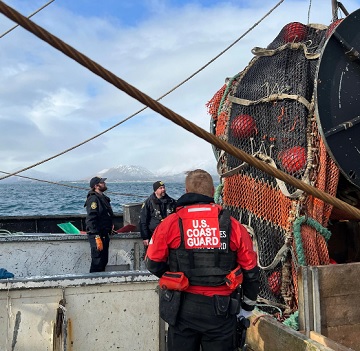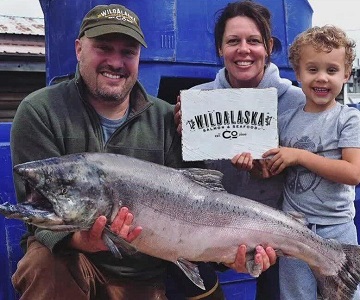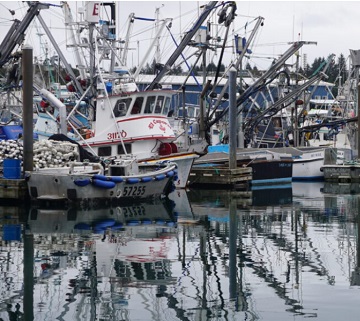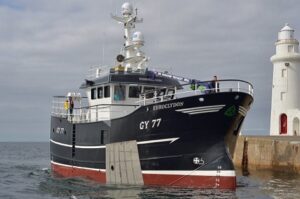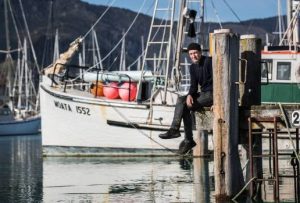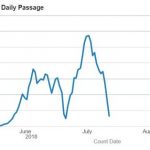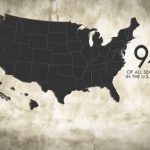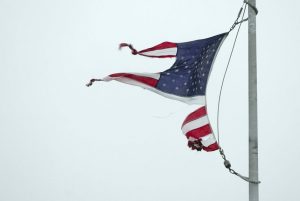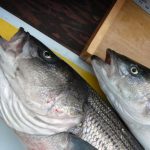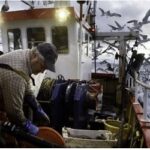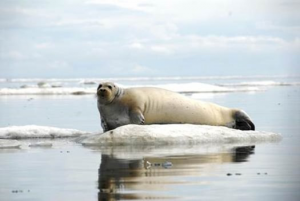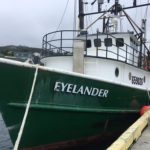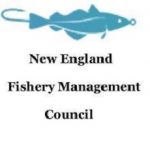Tony Wood has one goal in mind: getting the absolute freshest sockeye salmon and other seafood to customers across the country. To accomplish that goal “Captain Tony,” as he is known, splits his time between his Carbondale home and the remote area of Bristol Bay, Alaska where he leads a small commercial fishing fleet. How he got to that place is a story unto itself. Wood studied aviation at Southern Illinois University in Carbondale. During his collegiate summers, Wood worked as a fishing guide and apprentice pilot in King Salmon, Alaska. After relocating to Alaska, he started his own air taxi and guide business in the region. He was introduced to commercial fishing when a friend asked him to help for a couple of weeks on his vessel. Wood offered to be paid in fish, which he brought back to the Midwest. >click to read< 08:16
Tag Archives: Alaska
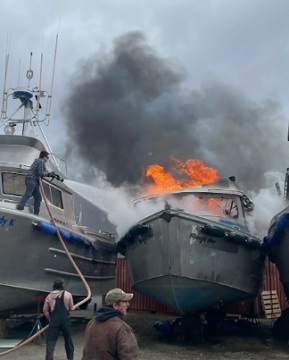
Boat caught fire May 21 in Naknek’s LMI boatyard
The commercial fishing boat F/V Midnight Hour caught fire in Naknek’s LMI boatyard on May 21. No injuries were reported. Boatyard Manager Micaela Emory-Wilson said the fire started around 12:30 p.m. Emory-Wilson said fishermen on a neighboring boat tried to put the fire out with extinguishers and garden hoses while others tried to contact the fire department. But she said GCI customers in Naknek have had trouble calling landlines from their cell phones. “So no one could get through to 911. The call kept dropping,” she said. The fishermen of the F/V Midnight Hour are staying in crew housing for the time being. They still hope to fish on another boat this summer. >click to read< 09:01
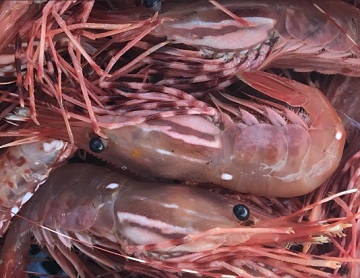
Commercial shrimpers adjusting to new spring fishing season
Three commercial pot shrimp fishery areas near Ketchikan are closed or set to close as fishermen approach area-specific spot shrimp harvest limits about two weeks after the fishery opened May 15. Fishermen targeting spot shrimp with pot gear this month are testing new waters after the Board of Fisheries during its 2022 rule-setting process voted to change the pot shrimp season start date from Oct. 1 to May 15; the fishery had occurred during fall and winter months since the mid-1900s. “It changed some of the players slightly, some of the people that typically fish in October are unavailable in the spring,” Meredith said. “You’ve got some new people on the grounds that weren’t available to do it in October that are now participating in May.” Meredith said that most of the fishermen who have been long-time pot shrimp fishermen “expected it to be a little different.” >click to read< 11:38
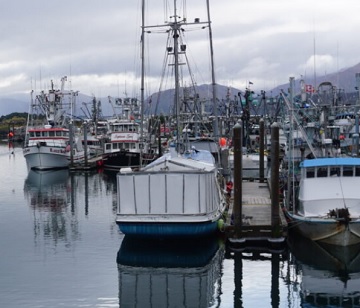
These are Alaska’s priorities for fishery management council
Based on discussions with a diverse range of user groups, delegations from our coastal communities, fishermen, processor representatives and other Alaskans, it is clear our fisheries are facing a number of challenges. These challenges include unprecedented declines in Bering Sea crab stocks and ongoing low harvestable levels of Pacific cod and other economically valuable stocks that are causing economic hardship for fishery participants and affected communities. We also heard ongoing concerns about the impacts of federal fisheries on key species like halibut, salmon, and crab. This input was valuable to better understand the issues and to identify priorities and potential solutions. >click to read< 16:01
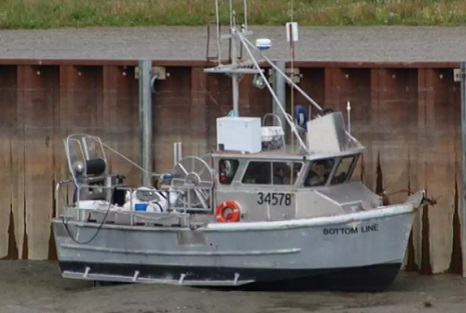
Wildlife Troopers to crack down on ‘performance-enhancing’ add-ons to Bristol Bay boats
Commercial drift gillnet boats must measure 32 feet or less to fish in the bay. And the fleet got a finger-wagging from the Alaska Wildlife Troopers earlier this year — a reminder to keep their boats within that limit. Wildlife trooper Capt. Aaron Frenzel said they fielded more complaints than usual about big vessels last year. So after the season, they went over to boat yards in King Salmon and Naknek to see what was going on. “A lot of the stuff is below the waterline that we can’t see… while we’re out on the water inspecting vessels,” he said. “So we started seeing some areas that just kind of expanded.” >click to read<, 18:40
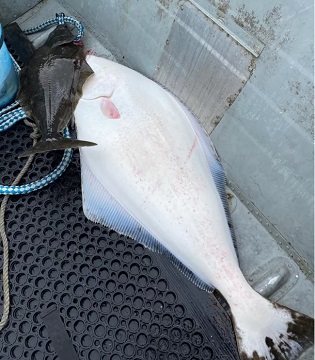
State charges Petersburg fishing guides with 54 violations
Four fishing guides at a Petersburg lodge are being charged by the State of Alaska with over 50 violations. The four men were working for Rocky Point Resort in 2019 and 2020. All of the charges are misdemeanors involving illegal fishing for halibut. Halibut is strictly regulated with a limited quota for commercial and sports fishermen, and the harvests must be documented. State and federal officers were involved in the investigations, including undercover officers posing as fishing clients. >click to read< 10:29
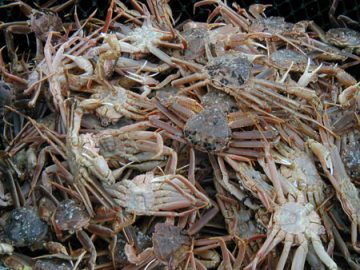
Disaster aid has arrived, but Western Alaska’s salmon and crab problems continue
The Alaska congressional delegation announced on Friday that the U.S. Commerce Department released the disaster aid. The money is to go to harvesters, processors and communities affected by designated disasters in salmon and crab fisheries that occurred between 2020 and 2022. For Bering Sea snow crab, signs are that the problems that led to the first-ever harvest closure, which was announced last October, will last for years. The National Oceanic and Atmospheric Administration Fisheries Service 2022 survey found that despite the emergence of cooler and more normal temperatures, mature male snow crab abundance was the lowest on record and mature female snow crab abundance was the third lowest on record. >click to read< 10:12
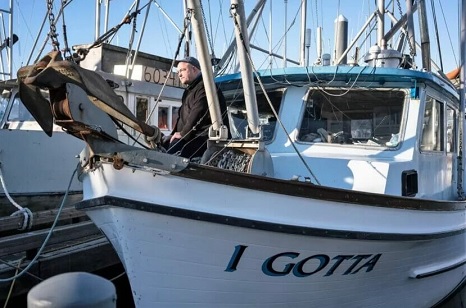
3 Alaska trollers contemplate a summer without chinook
Barring a stay, or a successful appeal, or other eleventh-hour legal action, there will be no troll fishery for king salmon in Southeast Alaska either this summer or winter. The fisheries have been canceled by order of the U.S. District Court of Western Washington on largely procedural grounds. According to the ruling they stem from a violation of the Endangered Species Act, and the failure of the National Marine Fisheries Service to fully address the impact of Alaska’s king salmon trollers on an endangered population of orcas in Puget Sound called Southern Resident killer whales. No other salmon species or commercial gear group or sport fishery anywhere on the entire Pacific Northwest coast is affected by the order, just commercial trolling for king salmon in Southeast Alaska. photos, >click to read/listen< 13:39
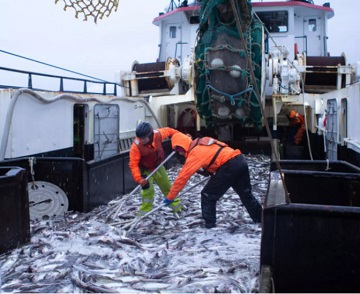
‘A’ season pollock quota back on par after decrease last season
Bering Sea pollock fishermen have almost met their “A” season quota. Since the fishery opened in late January, nearly 100 vessels have caught about 1.2 billion pounds of Alaska pollock. That leaves about 43 million pounds still available to catch. “It’s definitely a lot of fish,” said Krista Milani, a fisheries resources management specialist with the National Oceanic and Atmospheric Administration in Unalaska. “Sometimes when you think about the amount of pollock that they’re able to sustain in the Bering Sea, it’s kind of mind-blowing how much pollock is actually there.” According to NOAA, fishery managers were dealing with data gaps stemming from the COVID-19 pandemic. A population survey also came back lower than expected. “A” season ends June 10 — the same day “B” season starts. >click to read< 11:04
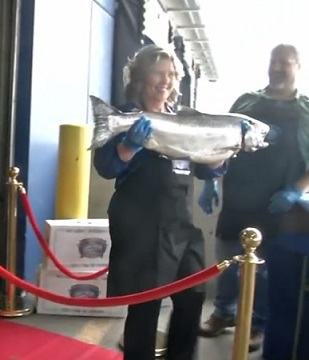
Fit for a king: First Copper River king salmon of season arrives in Anchorage
It all started with a kiss and, well, kind of ended with a kiss: The first fish were alive just 24 hours before it arrived at Ted Stevens Anchorage International Airport. “First fresh salmon coming out of the state ahead of Bristol Bay,” said Jeff Munro, a cargo operations manager. “The Copper River salmon is a real special salmon. It’s a special breed and species. It has a higher oil content.” Box after box of fresh fish came off the jet in Anchorage Tuesday afternoon. The first one got a special trip down a red carpet laid out for all to see. “Copper River salmon really marks the beginning of Alaska’s summer salmon season,” said Cassandra Squibb with Copper River Seafoods. Video, >click to read< 07:59
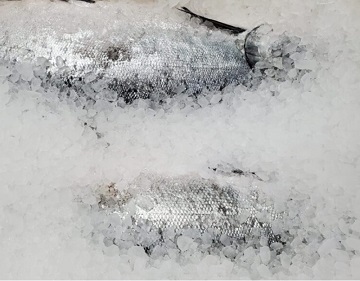
Alaska trollers will feel pain and unnecessary hardship from ruling on orca lawsuit
As president of Seafood Producers Cooperative, representing nearly 400 fishermen-owners, who reside in California, Oregon, Washington and Alaska, I want to convey our great disappointment and frustration with the recent ruling concerning the Wild Fish Conservancy and their lawsuit directed at our Salmon Troll fleet. The WFC found a technicality in National Oceanic and Atmospheric Administration’s biological opinion for troll-caught king salmon. No other fishing gear groups are being attacked and other commercial and sports fishermen in the region – and in the Puget Sound – will continue to harvest king salmon. >click to read< 08:59
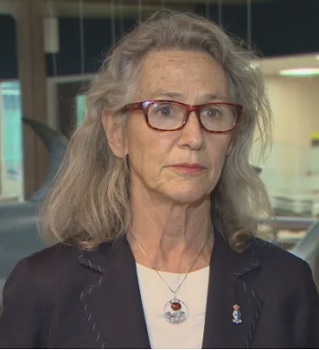
Alaskans poaching Canadian salmon top concern for federal fisheries minister
American fishing boats catching threatened Canadian salmon was flagged as a top concern for federal Fisheries Minister Joyce Murray before meeting with the U.S. ambassador to Canada in March. Over the past decade, and especially in 2021 — commercial fisheries in southeast Alaska have intercepted high numbers of Canadian salmon, particularly threatened sockeye stocks from the Nass, Skeena and Fraser rivers in B.C., the document said. The long-term rebuilding of threatened Pacific salmon stocks is a key objective for Canada, which is concerned about the potential impact a number of Alaskan fisheries are having on those stocks, the document said. >click to read< 10:47
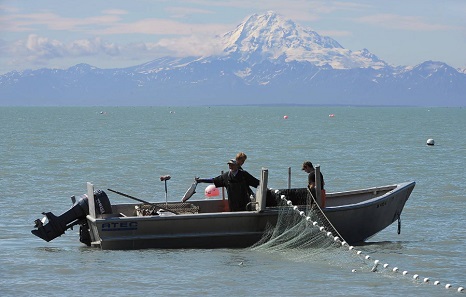
The end of an era for Alaska fishing may already be here
The historic Long Island fishing town of Amagansett is about 100 miles from New York City — roughly the distance from Ninilchik to Anchorage. Remarkably, a remnant commercial fishery continued on eastern Long Island into the 1980s, despite mounting pressure from urban growth, pollution and rival sport fishermen. This summer, Kenai Peninsula beaches from Ninilchik to Kenai will be empty of setnets and buoys. Family-run commerial fishing businesses, a major economic force in the Cook Inlet region since territorial days, have been shut down and may not be coming back. Exceptional sockeye runs of the 1980s, when setnetters on east-side beaches recorded a few million-dollar seasons, helped set the stage for Cook Inlet’s modern fish wars. Sportfishermen saw too many prize king salmon in fish totes headed to processors. As more permit-holders migrated to the east-side beaches, new efforts were launched to avoid Kenai River kings. >click to read< 15:40
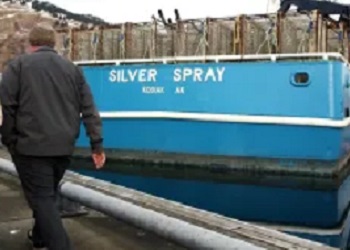
10 billion snow crabs disappeared from the Bering Sea. Scientists and fishermen are working together to understand why
The snow crabs’ population in the Bering Sea off the western coast of Alaska has fluctuated for decades. An increase in young crabs back in 2018 gave way to optimism that fishing would be good for years to come, but the hope was short-lived. Gabriel Prout and his family own the fishing vessel Silver Spray in Kodiak, Alaska. He said it was obvious something was wrong the last few years. The Bering Sea fishing grounds are usually covered in sea ice in the winter. But there wasn’t much ice, and they fished further north than usual. Finding snow crabs was still difficult. “It was just very poor fishing,” said Prout. “We searched for miles and miles and miles and really didn’t see anything.” >click to read< 10:15
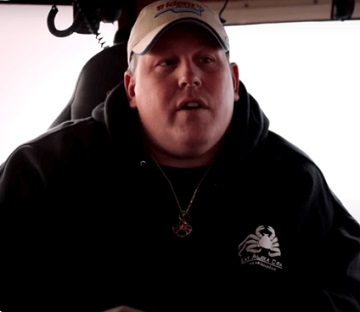
Deadliest Catch: Where is Captain Casey McManus anyway?!!
High-stakes reality series “Deadliest Catch” is back on Discovery Channel for its 19th season. But a few familiar faces are missing from the popular show. Former cast member Josh Harris does not appear in the new episodes. Nor does his one-time partner Captain Casey McManus of the F/V Cornelia Marie. Instead, McManus has taken a job that keeps him a bit closer to shore. While Discovery Channel had cut ties with Harris, McManus’ future on the show was unclear. However, when details about the currently airing 19th season were released, his name was missing from the list of captains. Video, >click to read< 17:49
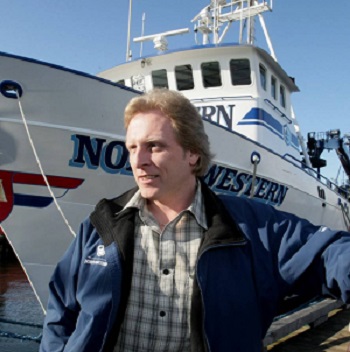
‘Deadliest Catch’ boat owner sues production company over former deckhand’s medical care
The owners of a fishing vessel featured in “Deadliest Catch” are suing the reality TV show’s production company and a contractor after a former crew member blamed a lack of prompt care during the pandemic for leaving him with serious medical problems. The civil lawsuit, filed Friday in U.S. District Court in Alaska by attorneys for the F/V Northwestern, centers on 58-year-old former deckhand Nick Mavar Jr., a longtime cast member of the show that debuted in 2005 on the Discovery Channel. The suit references a separate complaint Mavar filed in December in Washington’s King County Superior Court seeking more than $1 million in damages from the Northwestern’s owners, listed by Washington state records as Sig Hansen, the boat’s captain, and his wife, June. F/V Northwestern LLC is licensed in Alaska. >click to read<, and, ‘Deadliest Catch’ Lawsuit: Why Nick Mavar Jr. Sued Sig Hansen Over Medical Care >click to read< 12:02
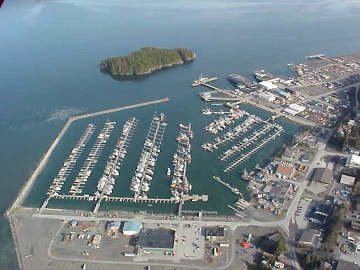
Big changes are coming to Cordova’s south harbor
Long overdue renovation of Cordova’s south harbor begins this fall, with a schedule that sets completion of the $40 million project in the spring of 2024. The project is under contract with Turnagain Marine Construction, an Anchorage firm that specializes in heavy civil marine construction, said Tony Schinella, who has served as harbormaster at Cordova for about a decade. “We are definitely excited,” said Schinella. “We’re well overdue for a facelift. The existing docks have been there about 40 years.” The revamp, initially expected to cost about $30 million,,, >click to read< 16:50

Coast Guard rescues 2 from fishing vessel taking on water near Cape Chiniak, Alaska
Kodiak, Alaska — The Coast Guard rescued two mariners Sunday after their vessel began taking on water in the vicinity of Cape Chiniak. A Coast Guard MH-60 Jayhawk helicopter aircrew hoisted both survivors at 9:11 a.m. and transported them in stable condition to awaiting emergency medical services at Air Station Kodiak. They were then transferred to Providence Kodiak Island Medical Center for further medical assessment. Watchstanders at the Coast Guard Sector Anchorage command center received notification at 8:00 a.m. Sunday that the 64-foot commercial fishing vessel, F/V Alitak was taking on water with two people aboard. >click to read< 18:35
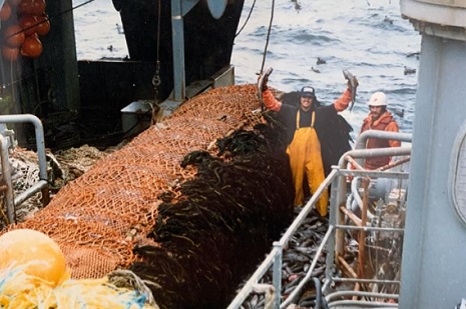
Who is Captain Sewall Maddocks?
Sewall’s love for the ocean first began when he was in grade school lobstering with his uncle Earl Brewer Sr. In 1977 he made his first trip on a trawler fishing with Richard McLellan on the F/V Sea Bring. He later became captain at 19 on the 82-foot F/V Irene’s Way, which was built for Richard at Goudy and Stevens in East Boothbay. In the early 80s, Sewall started to captain for F. J. O’Hara and Son’s out of Rockland, Maine He worked on the 110-foot F/V Alliance and later on the 119-foot F/V Araho, both stern trawlers, while fishing ground fish in the Gulf of Maine and on the northern edge of George’s Bank. Sewall later fished outside the 200 mile limit from Newfoundland on the tail of the Grand Banks. These boats typically had a crew of 5-6 people and caught 30,000-100,000 pounds of fish per trip with the fish being layered in ice in the fish hold. Great story! >click to read the rest< 10:22

Fisheries protester removed from Alaska Capitol in handcuffs, arrested after fight
A man urging Alaska lawmakers to take action against trawling was removed from the state Capitol in handcuffs and banned from the building after disrupting a committee hearing on Monday. After his removal, former fisheries worker Eric Osuch went to the nearby State Office Building and was arrested by the Juneau Police Department after a fight was reported there. He was charged with criminal trespass, the department said. Osuch has been a regular figure outside the Capitol since last week, advocating action against deep-sea trawling in order to preserve salmon returns. That topic was addressed by the North Pacific Fishery Management Council last week, with limited immediate action taken. Osuch said he was dissatisfied by that result and called for the abolition of the council. On Monday, he was in front of the Capitol as early as 8:45 a.m., yelling at passersby. >click to read< 09:52
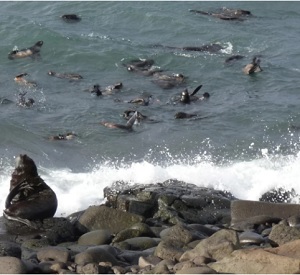
Proposed Bering Sea marine sanctuary draws pushback from fishing industry
The Aleut Community of St. Paul, the tribal government for the Pribilof Island community of around 500 people, says the sanctuary designation would give it greater authority to protect the region’s vast ecosystems and resources, including rich fishing grounds and habitat for the federally protected northern fur seal. NOAA accepted the tribe’s nomination last year, which set off panic bells in the commercial fishing industry. Many in the industry have voiced concerns that bringing in another co-manager could threaten the industry, even though NOAA and the tribe say the change would not affect fishing regulations. Commercial fishing representatives railed against the proposed sanctuary during an April 6 meeting in Anchorage, which NOAA hosted to clear up confusion within the industry. >click to read< 12:06
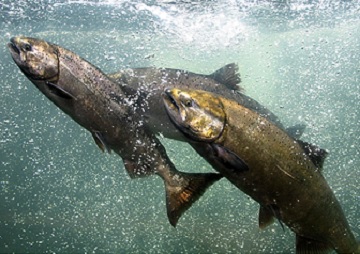
Judge throws out lawsuit accusing Alaska of mismanaging Yukon, Kuskokwim salmon fisheries
A Superior Court judge in Bethel has dismissed a lawsuit accusing state officials of unconstitutionally mismanaging Yukon River and Kuskokwim River salmon fisheries, leading to a crisis on those rivers. Judge Nathaniel Peters, an appointee of Gov. Bill Walker, said in a 16-page ruling on Thursday that plaintiff Eric Forrer failed “to identify any specific policy or action on the part of the Board (of Fisheries) or Commissioner (of the Alaska Department of Fish and Game) that could in any way be viewed as a violation of the sustained yield principle.” >click to read< 08:16
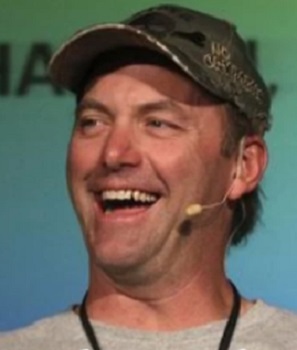
What happened to Andy Hillstrand? Where is he now?
Andy Hillstrand is a well-known television personality. His celebrity stems from his appearance in the documentary Deadliest Catch. During this time, he sailed on board the Time Bandit vessel with his brother and a crew of seamen. Hillstrand was willing to go to any length to meet the fishing quota on this expedition to catch king crabs and snow crabs. Andy Hillstrand was born and reared in Alaska with his brother Jonathan Hillstrand. They lived almost entirely at sea, learning and witnessing family trades. Andy began fishing with his brother at the age of seven. He was the third kid in a five-child family. Three of the five brothers worked together in the water. >click to read< 09:49
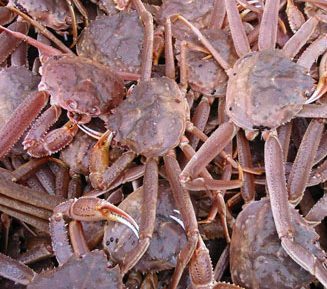
Record-low quota caught as Bering Sea Tanner crab season wraps up
The fishing season has ended for Bering Sea Tanner crab. Crabbers caught the record-low quota of two million pounds just before the end of March. Seventeen vessels went out for tanner across the fishery’s east and west districts, said Ethan Nichols, the assistant area management biologist with the Alaska Department of Fish and Game in Unalaska. “Some boats caught their quota in the fall. Some caught it in the spring,” said Nichols. “Overall, the fishery performance was pretty good. ”Vessels were targeting and retaining crabs that were smaller than the industry-preferred size of five inches, but still perfectly legal to retain,” said Nichols. “And that was somewhat to make up for the lack of snow crab coming out of the Bering Sea.” >click to read< 11:29
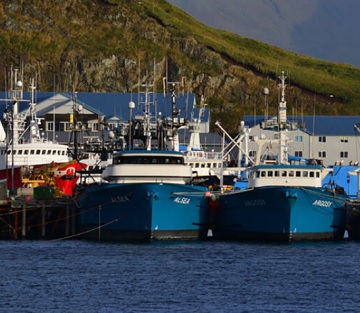
Alaska tribal groups sue federal fisheries managers, seeking action on salmon crisis
Two of Alaska’s largest tribal groups have sued the federal government, alleging federal regulators are mismanaging Alaska’s billion-dollar pollock and cod fishery amid an ongoing salmon crisis in central and southwestern Alaska. The Association of Village Council Presidents, which includes 56 tribes in the Yukon-Kuskokwim delta, and the Tanana Chiefs Conference, which includes 42 tribes in Interior Alaska, filed suit Friday in U.S. District Court against the National Marine Fisheries Service and Secretary of Commerce Gina Raimondo. The two tribal groups are asking a federal judge to require the agency to update the assessments used to set catch limits for federally managed groundfish fisheries in the Bering Sea and Aleutian Islands. >click to read< 14:57
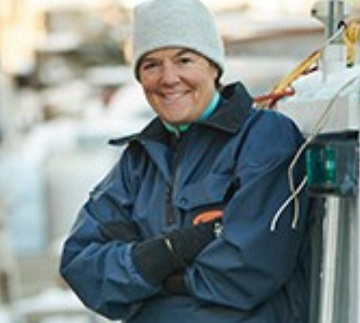
Deadliest Catch’s newest star: A Q&A with Maine’s Linda Greenlaw
The newest season of Deadliest Catch will feature a Maine connection, with popular fisherman, author and reality TV star Linda Greenlaw joining the cast. Q: You’re known to most Mainers and wider audiences as a fisherman of swordfish and lobster. Did you find transitioning to crab fishing difficult for “Deadliest Catch?” A: Transitioning to the crab fishery was not too difficult for me – I have been involved in the offshore red cred fishery here in New England and have been fishing fixed gear on and off since I was a kid. The difference was primarily hauling single, massive pots as opposed to trawls of smaller traps. Finding crab was the biggest challenge. This was my first experience with Bairdi crab and also my first trip on the Bering Sea. >click to read< 16:21
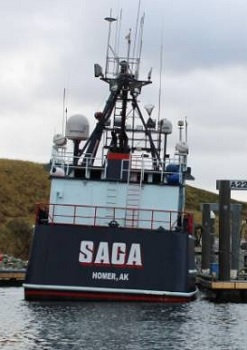
Why would a pediatric neurosurgeon go crab fishing in the Bering Sea?
The fears and anxieties associated with my role as a pediatric neurosurgeon are those related to my patients’ lives I have put at risk during the past 20 years. The last decade presented an opportunity for me to learn something from the commercial fishing industry about life circumstances where we experience fear and anxiety. In 2009, I was privileged to work on the F/V Miss Colleen, a commercial salmon fishing gillnet boat in Bristol Bay, Alaska. Then, in the fall of 2019 and winter of 2021, I was fortunate to be a deckhand on the F/V Saga, a commercial crab fishing boat in the Bering Sea profiled on the Discovery show Deadliest Catch. Both experiences had a profound effect on me and taught me how to switch from a “my life is at risk” mentality to one focused on preventing mistakes from happening through teamwork and effective communication. It occurred to me that there is no room for error in both the health care and commercial fishing industries. Both giving a patient the wrong medication or going overboard in rough seas can lead to death. >click to read< 18:08
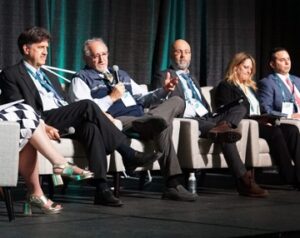
Alaska officials prepare for possible commercial fishing expansion into Arctic waters
Bans on commercial fishing in U.S. and international Arctic waters have been lauded as admirable preemptive actions that protect vulnerable resources before they are damaged by exploitation. But now the Alaska Department of Fish and Game is preparing for a time when the 14-year-old moratorium on commercial fishing in federal Arctic waters is lifted. The department is seeking $1 million in state general funds and another $2 million in federal funds to work on research to better understand those Arctic waters in the event that commercial fisheries are conducted there, Fish and Game Commissioner Doug Vincent-Lang said on Wednesday. >click to read< 12:42






